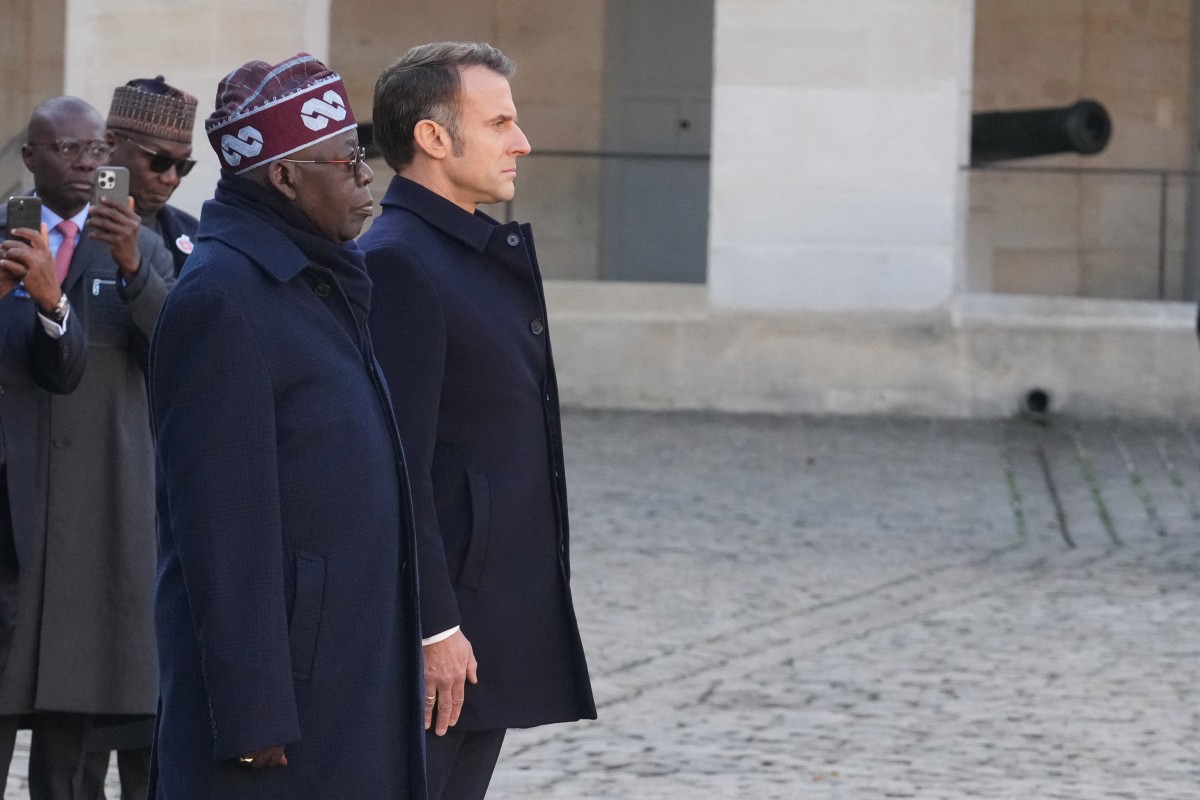
While the signing of agreements to renew economic ties between the two countries is cheery for both countries, these agreements must be such that will produce tangible results for Nigerians. They should not end as rhetoric or a glitz organised for the optics.
On December 2, 2024, Tinubu embarked on a three-day state visit to France, seeking to increase economic cooperation with Paris. That was the first state visit to France by a Nigerian leader in more than two decades. During the visit, Nigeria and France signed two major deals, including a $300 million pact to develop critical infrastructure, renewable energy, transportation, agriculture, security and healthcare in Nigeria.
Both nations also agreed to increase food security and develop Nigeria’s solid minerals sector. Also, two Nigerian banks, Zenith Bank and the United Bank for Africa (UBA) signed agreements to expand their operations into France. The President’s Special Adviser on Information and Strategy, Mr Bayo Onanuga, said President Tinubu emphasised Nigeria’s flourishing financial sector as a facilitator for foreign investment, particularly from French enterprises, as part of the drive to bolster food security. Tinubu reportedly explained that he was also looking to build ties in education, youth engagement, innovation and energy transition.
On the other hand, Macron’s office said the trip is “an opportunity to deepen the already dynamic relationship between France and Nigeria,” adding that both leaders would also address “shared values concerning finance, solid minerals, communication, trade and investment.
On the surface, the deals look promising, but their details are opaque and therefore call for caution. Nigerians want to know the deliverables properly reviewed by experts in those specific areas to avoid embarrassment to the country in future. This should be a partnership of equals, and not one skewed to favour the European nation more at Nigeria’s disadvantage. It must not be a master-servant relationship. Already, such a relationship has been the undoing of France in West Africa.
It is appreciated that since President Tinubu has been trying to attract investments to boost Nigeria’s ailing economy, he possibly saw the French visit as an opportunity, leveraging his relationship with Macron in his (Tinubu’s) days as governor of Lagos State. More so, President Macron had sought a renewed relationship in Africa following frosty ties with former colonies Niger, Mali and Burkina Faso in West Africa.
Paris is seeking to expand its influence in the continent to include English-speaking nations after those allies cut ties with France and swerved towards Russia. Paris’ gravitation towards English-speaking Africa signals Macron’s desire to reverse the country’s declining influence on the continent, with visits to Nigeria in 2018, Ethiopia in 2019 and South Africa in 2021.
But why did those countries sever ties with France? They accused France of wielding overbearing political and economic influence on them. If truly France is overbearing on its African allies, will Nigeria, another African country, have a different treatment after cementing this cooperation?
What exactly is Nigeria’s interest in France, which is losing its grip on its former West African allies and seems desperate to relaunch itself into Africa? Are these agreements really necessary, because Nigeria is already France’s top trading partner in sub-Saharan Africa? Nigeria was France’s number one trading partner in sub-Saharan Africa in 2023, followed by South Africa, according to the French customs authority.
Although it is believed that France still holds significant sway in African trade despite competition from China, India, and Turkey, her current rating in Africa is not exactly rosy. France is being seen as unduly exploiting mineral resources across the Sahel, in a manner suggestive of an undermining of the best interest of those countries. Nigeria should therefore be sufficiently wary to develop enough checks to make sure that the agreements signed will generally be in the interest of both countries and not a one-sided agreement.
Considering the uncomplimentary roles France is believed to have played in the crises in countries like Chad, Niger, Mali, and Burkina Faso; coupled with her long history of involvement in the Sahel region, it remains a negative that countries associated with France have been grappling with poverty and insecurity.
However, it is cheery that since Nigeria has no colonial history with France, her future relationship with France is not expected to be defined by France’s fractured relationship with the Sahel. Nevertheless, any ties between Nigeria and France may be viewed suspiciously concerning the progress of the Economic Community of West African States (ECOWAS) countries, of which Nigeria is a leader.
Therefore, as a leader of ECOWAS, Nigeria should naturally exercise caution going into alliance with any country whose policies are considered offensive by some members of the bloc. The alignment with Russia by military-controlled Mali, Niger and Burkina Faso, have clashed with ECOWAS policies. As a result, these member states have pulled out of the bloc threatening to disintegrate it. Therefore, the interest of these former French allies should also be considered, especially as ECOWAS is still wooing them back into the fold.
Curiously, President Tinubu is obviously in love with France. That’s his preferred country for medical tourism. Before, during and after his election, the President usually does not miss the opportunity to visit France for medical checks, treatments or vacation. Again, the president seems to be comfortable with some French business partners.
By and large, Nigerians are far more eager for a robust and flourishing economy, and they hope that these pacts will make that happen.






